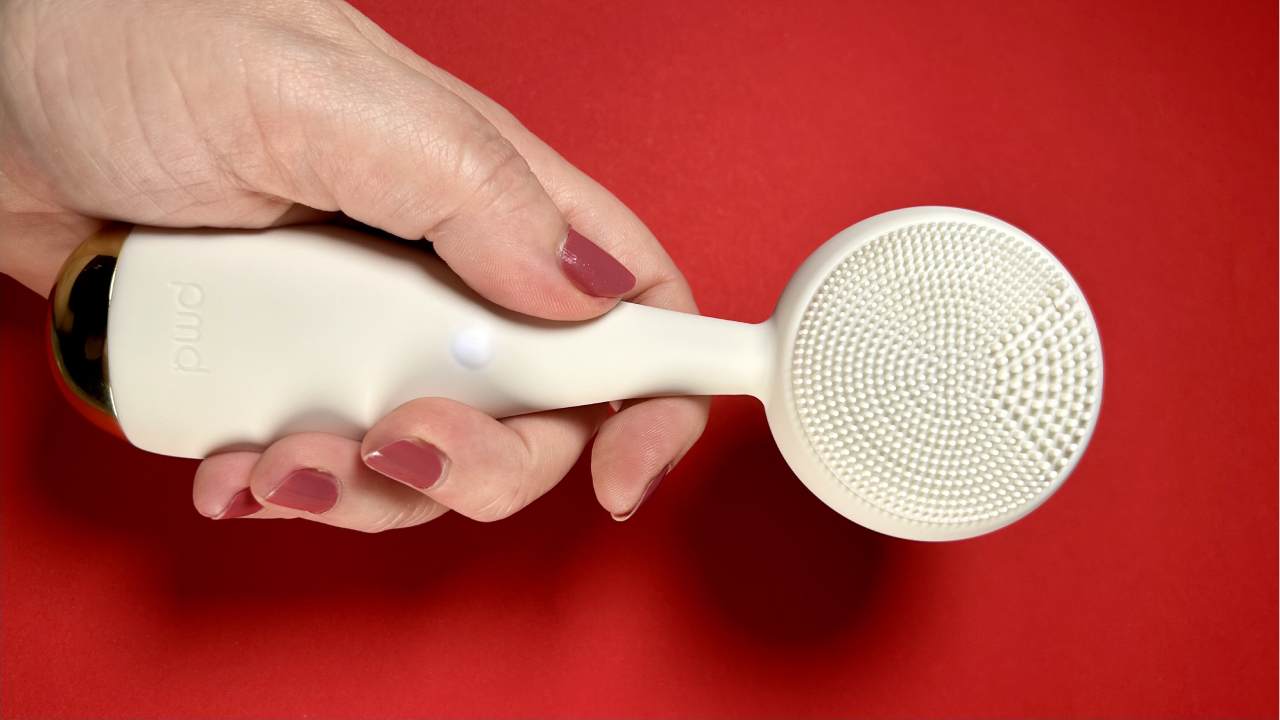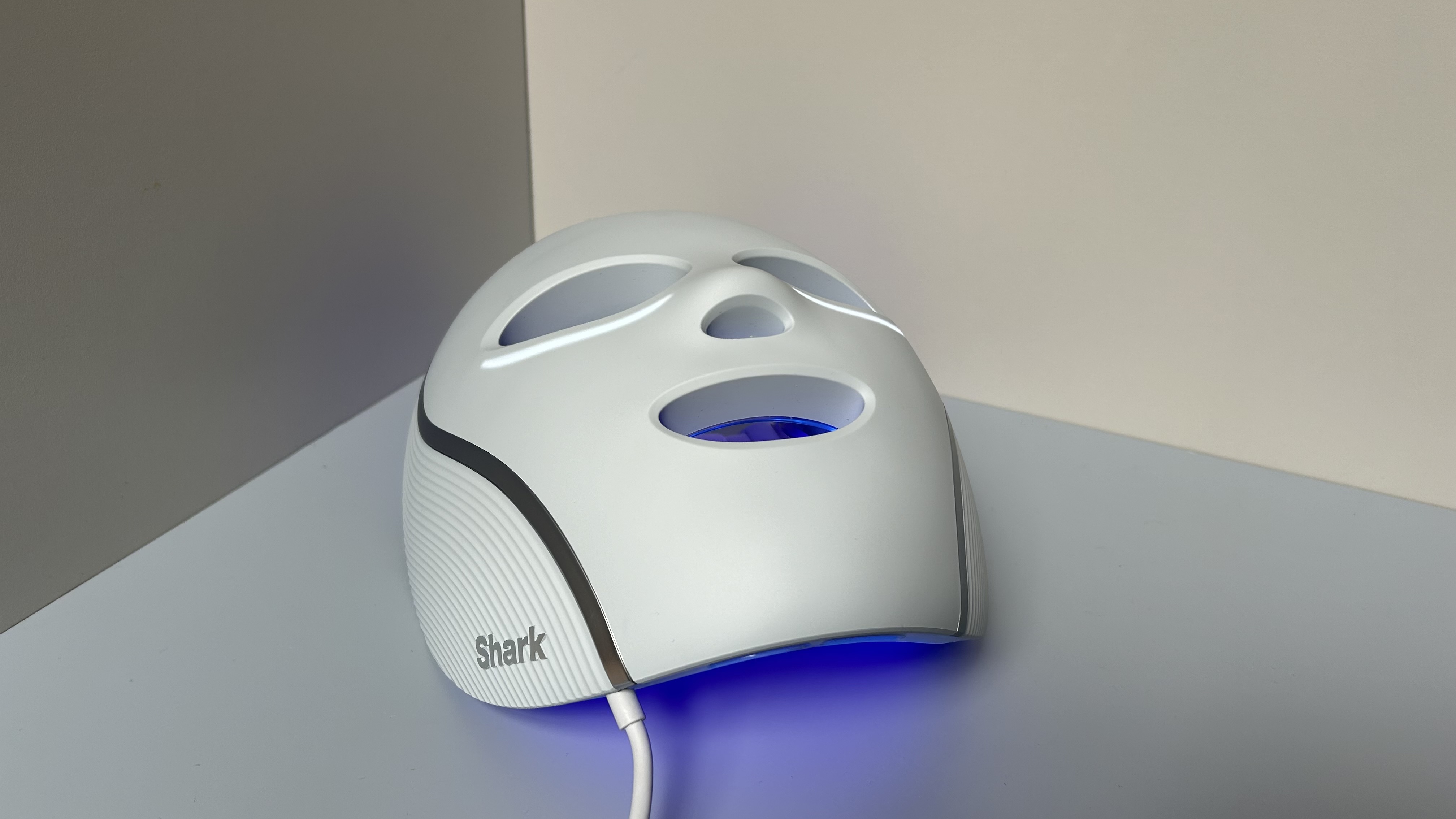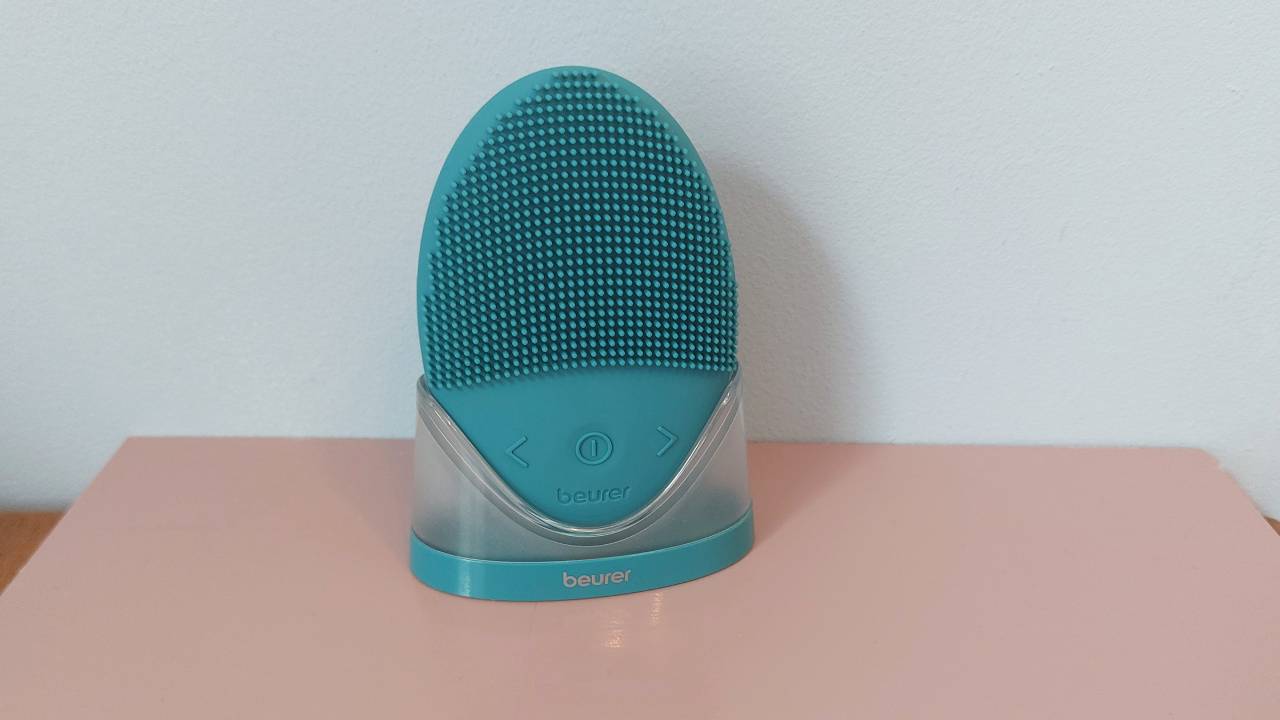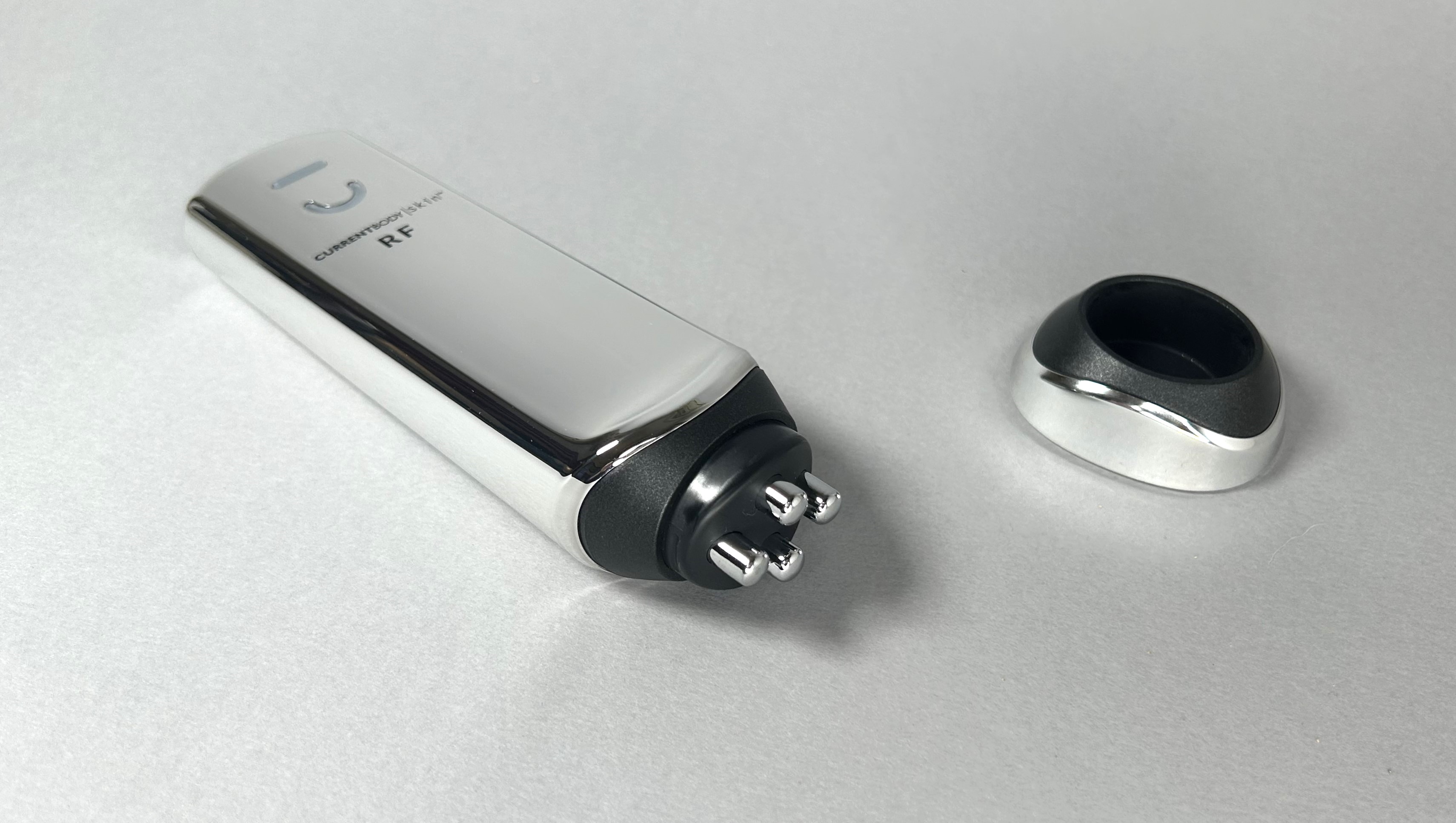

As we transition from winter to spring, the rise in temperature isn't the only thing that changes. Due to receptors in our cells, our skin is also responding to increased sunlight and warmer weather. However, even if you've perfected your spring skincare routine, it's common for people to encounter a range of skin-related challenges when a shift in seasons occurs.
With this in mind, I spoke to Dr Vanita Rattan, global skin doctor and founder of SkincarebyDrV. Together, we discussed the seven main skin concerns that are caused by spring weather, and exactly how to combat them.
Ranging from sunburn to dry skin, there's a number of ways that warmer weather can affect our skin, but that doesn't necessarily mean we have to suffer. Keep reading to find out Dr Vanita Rattan's guidance, tips and advice on how to stay protected this season.
1. Allergies
As spring unfolds, so does the prevalence of seasonal allergies. When an allergen enters your body, the immune system responds by attacking the allergen, as though it were a bacterial or viral threat. This triggers the release of histamine, which is the culprit behind familiar allergy symptoms such as sneezing, itchy eyes and irritated skin.
As your body tries to fight off irritants, the skin can become dry and dehydrated, or even cause rashes. As the first line of defence, take over the counter antihistamines to ease hay fever symptoms. If you have developed a rash from your allergies, apply anti-itch creams to treat the affected area and relieve scratching.
Check out the five products have helped me defeat my seasonal allergies if you're interested.
2. Sunburn
Sunburn is a form of skin damage caused by overexposure to ultraviolet (UV) radiation from the sun. When the skin is exposed to excessive UV rays, it can lead to inflammation, redness, and pain. The primary cause of sunburn is the UVB radiation, although UVA radiation can also contribute to skin damage, so it is important to have broad-spectrum protection from your sunscreen.
Sign up to the T3 newsletter for smarter living straight to your inbox
Get all the latest news, reviews, deals and buying guides on gorgeous tech, home and active products from the T3 experts
In the days following sunburn, the affected skin may start to peel as the damaged cells shed for new skin cells to replace them. If you have sunburn, it’s important to cool your skin down with a cold damp towel and apply aftersun. Drink plenty of water to prevent dehydration and take painkillers for any pain. Sunburn can also easily be avoided by ensuring regular application of SPF50+.
Read the five reasons why you should use sunscreen daily for healthier skin for more information on this.
3. Insect bites
Spring is the season where many plants begin to bloom, providing a rich source of pollen and nectar for insects. This abundance of food attracts pollinators such as bees, butterflies, and other insects, leading to higher insect activity. As well as this, when plants and trees start to grow and produce new leaves, insects find more habitats and food sources. Typically, the warmer weather accelerates the metabolism of many insects, making them more active and visible.
Protect the skin by regularly applying insect repellent, avoiding fragrances that can attract insects, and wearing protective clothing such as long sleeve tops to minimise exposed skin. This is particularly important if you spend a lot of time in woodland areas or near water. Though itchy, for the most part, insects are harmless. It’s the bites and stings from hornets, wasps, bees, and ants that can cause more severe reactions. Put a medicated cream on the area to relieve itching and avoid scratching the skin to prevent infection.
4. Acne
As spring arrives, humidity levels may rise. Higher humidity can lead to an increase in oil production in the skin, potentially clogging pores and contributing to increased breakouts. With warmer weather, people tend to spend more time outdoors engaging in physical activities. Increased sweating, coupled with exposure to environmental pollutants, can cause an accumulation of oils, debris, dirt, and dead skins that contribute to acne.
To combat this, use a Micellar Gel Wash to remove excess oil without stripping the skin of its hydration. Also, incorporate a gentle, hydrating chemical exfoliator twice a week to leave the skin free of damaging pollutants and dead skin.
5. Fungal infections
Fungal infections thrive in warm and moist environments. As temperatures rise during spring, the combination of higher humidity and increased perspiration creates an ideal breeding ground for fungi. For example, athlete's foot is caused by various types of fungi which can affect the toes, the soles of the feet and toenails. This is because warmth and moisture get trapped in shoes when they are worn for a long time, providing the ideal environment for fungi to flourish. As well as this, people are likely to enjoy exercising more in hot weather, whether that be swimming or going to the gym.
Communal areas like swimming pools, changing rooms and gyms can be sources of fungal contamination, so it is important to keep the feet dry and change socks regularly. Use antifungal powders or creams as preventive measures, but if your symptoms persist or worsen, speak to your GP for medical treatment.
6. Dry skin
The shift into warmer weather can leave your skin feeling dry and dehydrated. This is because the fluctuating temperatures and occasional gusts of wind can disrupt the skin barrier and strip the skin of its essential moisture. Dryness can leave your skin vulnerable, not only creating discomfort but also potentially exacerbating existing skin conditions like eczema and psoriasis. The higher pollen counts during spring may also trigger allergies, causing further redness, itchiness, and flaky skin.
If your skin tends to feel dry, opt for a lightweight moisturiser. The star ingredients to look out for in your cream are ceramides to strengthen the skin barrier, peptides to plump the skin and glycerin to hydrate the skin without feeling heavy or greasy.
Check out our guide to the best men's moisturiser or best women's moisturiser to see our top recommendations.
7. Melasma
Melasma is a common skin concern characterised by brown or dark grey patches on the face, neck, and arms. The primary trigger for melasma developing is ultraviolet (UV) radiation from the sun. This can stimulate melanocytes, which are the skin cells that produce melanin, to create more pigment. Therefore, melasma becomes more noticeable as it begins to darken.
To help prevent melasma, minimise exposure to the sun’s UV rays, wear SPF25+ and put on a wide-brimmed hat. Anti-melasma sunglasses will also ensure the skin around the cheekbones and temples is protected.

Lizzie is T3's Home Living Staff Writer, covering the latest in style, wellness and beauty tech. From skincare gadgets to vacuum cleaners, she's your go-to for trends and top recommendations.
When not writing, Lizzie enjoys mooching around Bath, spending time with loved ones, or testing her review units – often during an enthusiastic cleaning spree!
-
 PMD Clean Redvolution review: get clearer, younger-looking skin with this 2-in-1 cleansing brush
PMD Clean Redvolution review: get clearer, younger-looking skin with this 2-in-1 cleansing brushDeep cleansing and red light LED therapy? It’s a yes from us
By Joanna Ebsworth
-
 Buff LED Face Mask review: men deserve great skin too
Buff LED Face Mask review: men deserve great skin tooIt's specifically designed for the male complexion
By Lizzie Wilmot
-
 Shark CryoGlow review: the best LED face mask I've tested so far
Shark CryoGlow review: the best LED face mask I've tested so farShark Beauty's entry into the skincare market has been nothing short of impressive
By Lizzie Wilmot
-
 Best Christmas gifts 2024: wellness, fragrances, grooming and more
Best Christmas gifts 2024: wellness, fragrances, grooming and moreIf you're struggling to find the perfect gift, you've come to the right place
By Lizzie Wilmot
-
 7 fruits and vegetables to help your skin glow this autumn
7 fruits and vegetables to help your skin glow this autumnFrustrated with tired, dehydrated skin? These fruits and veg will help you out
By Lizzie Wilmot
-
 CurrentBody vs TheraFace: which skincare tech brand should you choose?
CurrentBody vs TheraFace: which skincare tech brand should you choose?Both beauty gadget pioneers deliver amazing results. But which one is better for your skincare needs?
By Joanna Ebsworth
-
 Beurer FC 52 Laguna Facial Brush review: 2-in-1 skincare that cleanses, massages and won’t break the bank
Beurer FC 52 Laguna Facial Brush review: 2-in-1 skincare that cleanses, massages and won’t break the bankIs this the best facial cleansing brush under £50?
By Bethan Girdler-Maslen
-
 CurrentBody Skin RF Radio Frequency Skin Tightening Device review: get a firmer face without the facelift
CurrentBody Skin RF Radio Frequency Skin Tightening Device review: get a firmer face without the faceliftTurn your frown upside down with this impressive wrinkle-reducing gadget
By Joanna Ebsworth

